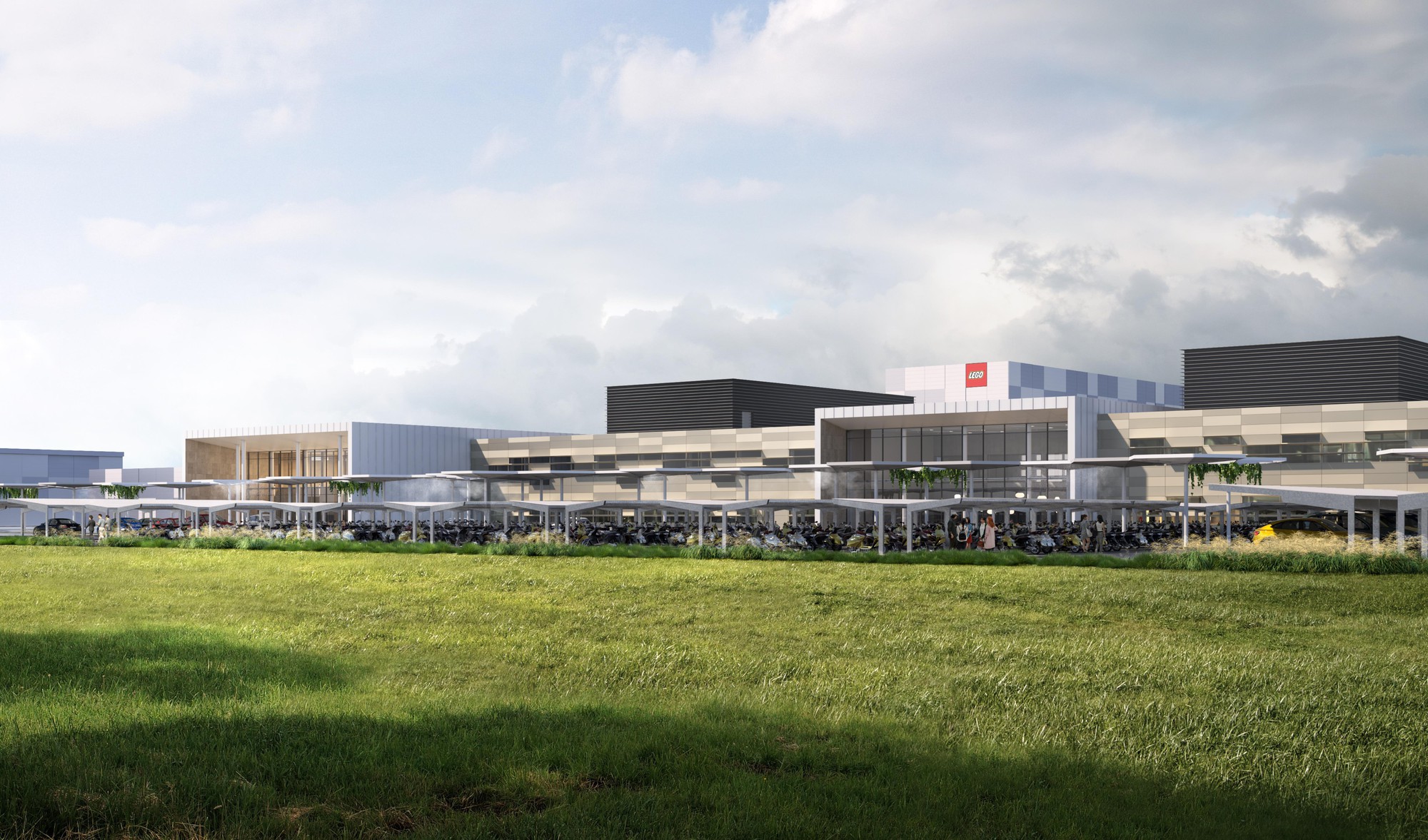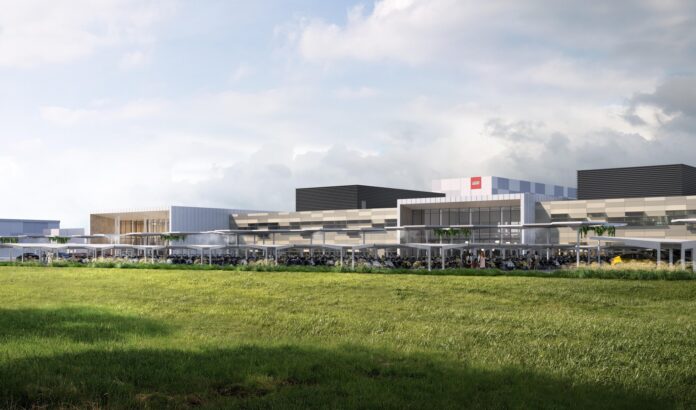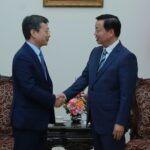The renowned green living website, The Cool Down, reported on May 11 that the famous Danish toy manufacturer, Lego, inaugurated an astonishing $1 billion factory in Vietnam this April. This new facility is designed to produce the beloved toy bricks enjoyed by children worldwide, all while keeping environmental sustainability at the forefront.
Lego’s new base, located in the VSIP III Industrial Park in Binh Duong Province, will operate on clean energy from the start of 2026, becoming the first factory in Vietnam to achieve this environmental milestone.
Spanning an area equivalent to 62 football fields, the factory utilizes 12,400 solar panels alongside a battery storage system to meet its electricity demands sustainably.

Lego’s new $1 billion factory in Vietnam is designed to produce their iconic toys without harming the environment. Image: Lego
According to The Cool Down, this development benefits both the toy manufacturer and environmentally conscious parents.
Lego is committed to reducing pollution by 37% by 2032 and aims for net-zero emissions by 2050. The company will use paper bags instead of single-use plastic bags for packaging and has planted twice the number of trees felled during construction.
The decision to locate the factory in Vietnam also holds strategic business significance for the Danish toy giant. By establishing the factory in a region where they distribute their products, Lego can circumvent tariffs and better serve the burgeoning Southeast Asian markets. A distribution center in Dong Nai Province will support the Australian and other Asian markets.
Inside the factory, advanced robots will craft the colorful toy bricks with astonishing precision—up to one-tenth the width of a human hair. The facility will employ thousands of skilled workers trained at Lego’s factory in eastern China to operate these intricate machines.

Lego’s factory project in the VSIP III Industrial Park, Binh Duong Province, officially inaugurated on April 9, 2025. Image: Lego
Vietnam also benefits from this project
The Vietnamese government has set a target of net-zero emissions by 2050, and Lego’s new factory sets a precedent for greener manufacturing practices in the country.
A new regulation introduced in 2024 allows large foreign companies to purchase clean energy directly from solar and wind energy producers, facilitating Lego’s clean energy goals.
“We just want to make sure that the planet that children will inherit when they grow up is still there. That it’s still functioning,” said Lego CEO Niels Christiansen.
Mimi Vu, founder of Raise Partners, a consulting firm in Ho Chi Minh City, remarked that Lego’s factory demonstrates how large, energy-intensive factories can be sustainable and profitable. “Sometimes it takes a big company, like Lego, to take those risks. To prove that we can do it… and we can be profitable,” she said.
(Source: The Cool Down)
“From July 1st: Coffee Shop and Convenience Store Owners are Now Mandatory Participants in Social Insurance – How Much are the Contributions?”
The expansion of compulsory social insurance coverage, especially the inclusion of registered business owners, is a significant step towards safeguarding the rights of millions of self-employed workers. This move not only ensures their protection but also fosters a more equitable and sustainable society.
US-Vietnam Collaboration: Advancing AI and Semiconductor Partnerships
“As part of their business trip to the United States to attend the SelectUSA 2025 conference, the Ministry of Finance’s delegation worked with Meta and Intel to foster collaboration in artificial intelligence and semiconductors. The delegation aimed to strike a balance between trade and high-tech development through these strategic partnerships.”





















